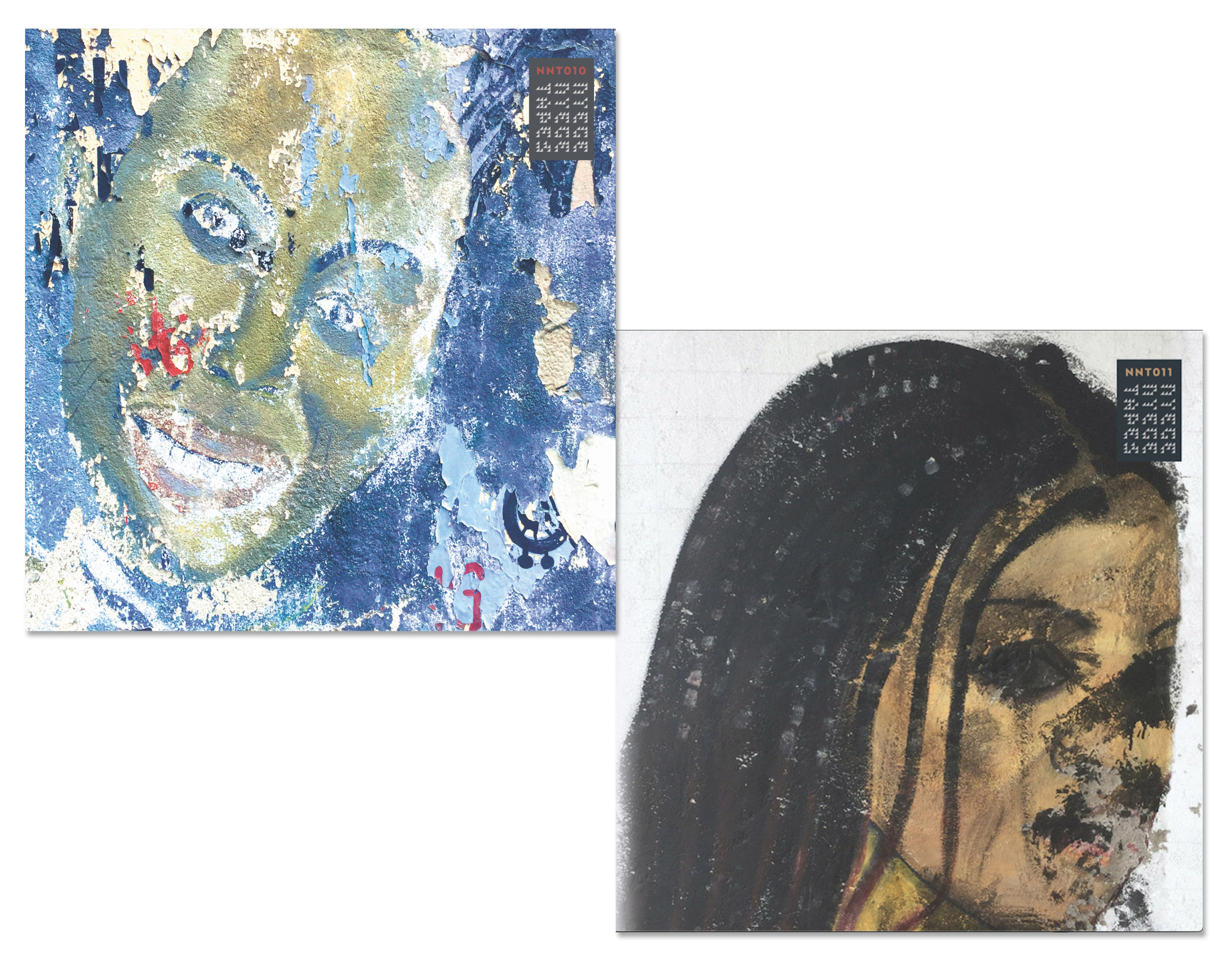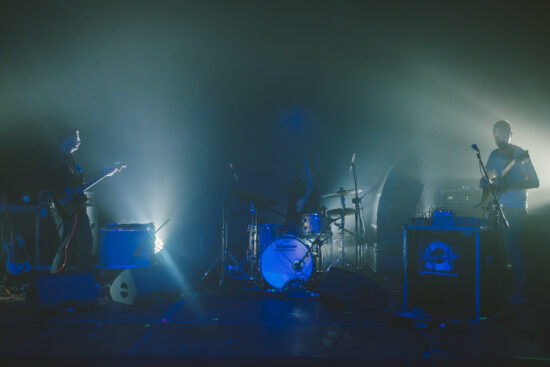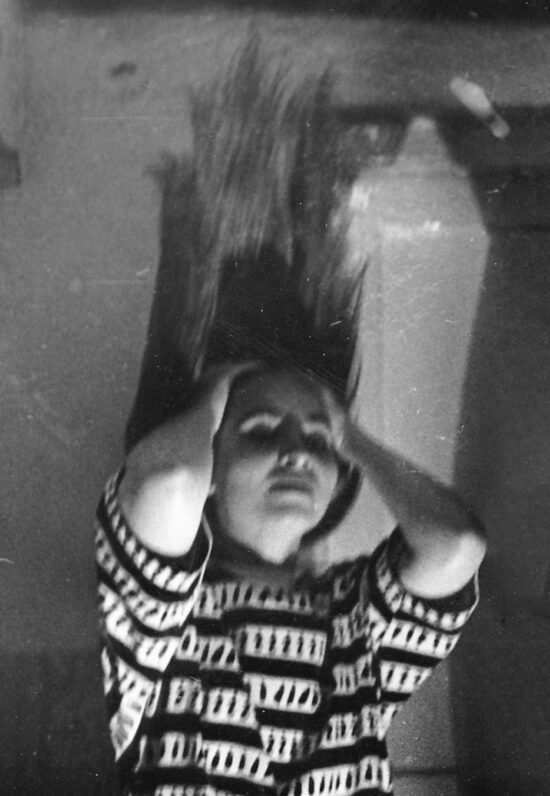Uncompromising, raw sound with speeds up to 200bpm. Cheeky and frenetic music, and above all direct – it’s singeli.
Translation: Aleksandra Szkudłapska
If you haven’t heard about singeli, a genre hailing from East Africa, you should totally catch up – and fast! For the past couple of years, Uganda’s capital Kampala has joined the ranks of Berlin, Paris, Chicago or Detroit. These cities made a name for themselves over the years thanks to house, techno and footwork, but East African music scene associated with the Nyege Nyege or Hakuna Kulaka labels began to catch up really fast, presenting fresh and thoroughly original music. As a short introduction, it’s worth outlining the background of both labels, which combine tradition with a contemporary sound in a multitude of ways: from Nihiloxica to Jako Maron’s experiments with traditional Maloya music to wedding songs made contemporary by Otim Alpha. What is singeli? It’s East Africa’s second style, right after gqom, characterised by a completely different sound, tempo and energy. Singeli was born in Dar Es Salaam, Tanzania, incorporating a variety of local styles – mchirku, sobene, taarab and segere and blending them with hip-hop and South African kwaito. Sounds like a Molotov cocktail? You’re quite right: this music is insanely fast, with the tempo being anything upwards from 180 bpm. Tanzania’s youth is already ecstatic about it, both in the independent and mainstream incarnation – artists playing a more commercial (and slower) version of singeli enjoy popularity compared to Drake or Kendrick Lamar. They’ve also been featured in The Guardian and Boiler Room – recommended reading.
Singeli made the headlines a couple of years ago because of the Sisso compilation, named after a legendary studio. This is where most producers released by Nyege Nyege started out. Sisso presents an uncompromising, raw sound – this music is as cheeky as it is direct. Artists work on basic Virtual DJ software – easy loops are ideal to turn up heat at the disco and fuel those crazy parties. Just like punk, only singeli uses an entirely different set of tools. This shows by the series of record covers of solo singeli artists – images of figures from walls, torn down, raw, as if photographed casually in passing. And yet they are very articulate. Like the music: these frenetic, buzzing pieces are best enjoyed live, which I’ve had the pleasure to check out at Bamba Pana’s concert during last year’s Unsound festival. This year, though, Nyege Nyege has released two more meaningful albums.
Tatizo Pesa by Jay Mitta is one of the wildest records in the Nyege Nyege catalogue. Synthetic drums and pulsating loops sound as if they’ve been accidentally speeded up while fast forwarding a tape. The music is still a bit slower than with Bamba Pana (180-190bpm instead of 200+), and not as raw, with many catchy details coming to the fore. The title track features Dogo Mjanja, 14-year-old MC who raps himself to oblivion, matching the devilish tempo, and is brilliantly matched by the original drumming in the background and synthesiser passags, sounding like a clarinet on acid. This is footwork raised to the third power, the most hardcore version of British rave, with everything rushing at breakneck speed, without restraint. “Don Bet” is like a speeding spinning wheel – starting from what resembles classical rave, then giving way to a synthetic beat, to finally include synthesiser sounds and vocals. In turn, “Mchuma Bet” is built around a brilliant syncopation, with dense samples (sounding like a quasi-orchestra) and melodies in the background. “Sapiens” reaches for Arabic scales backed with a monotone beat, while “Masera” uses sampled cat sounds. “Dura” offers a frenetically fast beat supplemented with a pop melody in the background. Jay Mitta comes dangerously close to the endurance levels of the human ear, filtering folk and traditional melodies through raw electronic sounds, and blending them with elements of bongo flava and Swahili rap. This is wicked stuff, at the same time simple and amazingly cocky.
If Jay Mitta presents a punk attitude to electronica, then Duke’s Uingizaji Hewa is a musical conglomeration of pop culture, consumerism and sampling that grind through a mass of sound elements. “Naona Laaah” is near-explosive blend of Don Tach’s vibrating vocals, amazing drum beats and bass – with the track length of almost eight minutes. No, it doesn’t get boring! The simple beat of “Sing 4444444” sounds as if it was mixed by Felix Kubin, and “Duke 4” draws the attention with its unique rhythm and what – for singeli – could be described as an atmospheric mood. Like “Duke”, it’s a classical sound, with keyboards in the background, distinct rhythm and quasi-vibraphone melodies. “Duke bit Puyo” features a melody that could have been played on a pipe, but one of the strongest moments on the record is “M Lap”. It’s a 9-minute dance monument, where the beat and melody intertwine in a hazy background, while the foreground is occupied by shouted, raw vocals and isolated beat. From minute 6 onwards, the track sounds as if it was recorded at a local festival, turning into a lo-fi radio drama or performance of sorts, where it’s the music that matches the vocals (rather than the other way round). In a nutshell: this is one crazy ride. There’s kitsch vs contemporary, tradition vs electronics and samples, mixed all together to create a daring blend of styles and rapping. Duke represents Pamoja Records – he’s the most punk and uncompromising in his sound: from the frenetic pace, ambient samples, ad jingles and radio dramas. The essence of singeli, and a breath (or rather gust) of fresh air. This is not a game of ‘how to make African traditions sound contemporary’, but the music of the future: fresh, topical, and ready to compete with the scenes of cities listed at the beginning of this text. In my humble opinion, it’s currently on top of the podium.
Duke, Uingizaji Hewa, Nyege Nyege
LISTEN: 🎶 Spotify 🎶 Tidal 🎶 Deezer 🎶 Apple Music
Jay Mitta, Tatizo Pesa, Nyege Nyege
LISTEN: 🎶 Spotify 🎶 Tidal 🎶 Deezer 🎶 Apple Music




